Quick Answer: Yes, many at-home STD test kits are over 90% accurate and use the same lab-grade tech as clinics. The key is following instructions closely. Most tests for infections like chlamydia, gonorrhea, syphilis, and HIV return results in 2–5 days with full privacy and no clinic wait.
Why At-Home STD Tests Exist in the First Place
Over 60 million Americans live in areas with limited access to sexual health services. Add stigma, long clinic wait times, and medical distrust, and you’ve got a testing gap that traditional healthcare can’t fill. At-home STD kits emerged to meet this need: giving people a way to test without judgment, logistics, or gatekeeping.
They're especially valuable for people with no insurance, queer folks facing discrimination, or anyone who just prefers to handle testing discreetly and on their own terms.
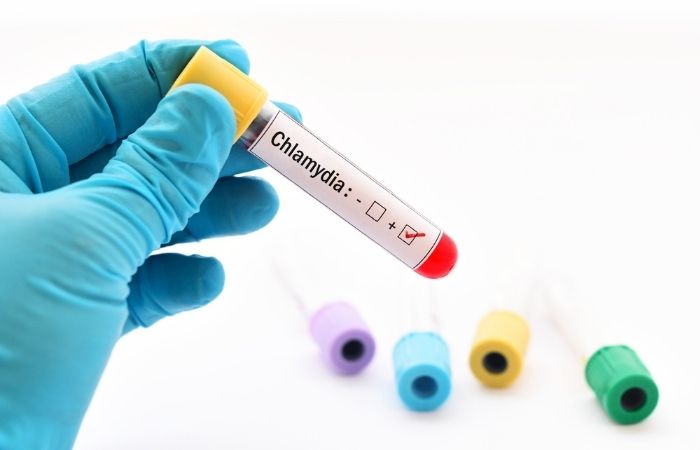
People are also reading: Why Black Communities Face the Highest STD Rates, And What No One’s Fixing
What 92% Accuracy Really Means
Let’s be real, 92% sounds solid, but what does it mean? It depends on the type of STD, the kind of sample you collect (urine, blood, swab), and the tech used. A 92% sensitivity means the test correctly identifies 92 out of 100 people who actually have the infection. For some infections like HIV and syphilis, high-quality kits hit 99%+ accuracy when used correctly.
That’s on par with in-clinic tests, and in some cases, it’s better because you avoid human bias or rushed provider error.
Next, we’ll dive into how these kits actually work, from swabs to lab reports.
How Do At-Home STD Tests Actually Work?
These aren’t dollar-store swabs. Most reputable at-home STD kits use the same technology found in clinics, PCR (polymerase chain reaction), ELISA (enzyme-linked immunosorbent assay), or rapid antigen detection. The difference? You collect your own sample at home, then send it to a certified lab in a pre-paid envelope.
Depending on the test, you might provide a urine sample, vaginal swab, finger-prick blood sample, or oral swab. Instructions are crystal clear, and many kits include videos or QR codes that walk you through every step. Once your sample is processed, you receive results through a secure portal, usually within 2 to 5 days.
Some kits even offer follow-up telehealth support or prescriptions if your result is positive. It's clinical-level accuracy, without the clinic-level awkwardness.
Which STDs Can You Test for at Home?
Not all tests are created equal, but the best at-home kits can screen for multiple infections with one sample. Common at-home test kits reliably detect:
- Chlamydia
- Gonorrhea
- HIV (Types 1 & 2)
- Syphilis
- Trichomoniasis
- Hepatitis B and C (available with blood-based kits)
- Herpes (HSV-2) (though testing here can be more complex and should be interpreted cautiously)
Multi-panel tests bundle 3–8 infections for full-spectrum screening. That’s ideal if you’ve had unprotected sex, multiple partners, or just want a routine check-up without guessing which test you need.
Check Your STD Status in Minutes
Test at Home with Remedium3-in-1 STD Test Kit
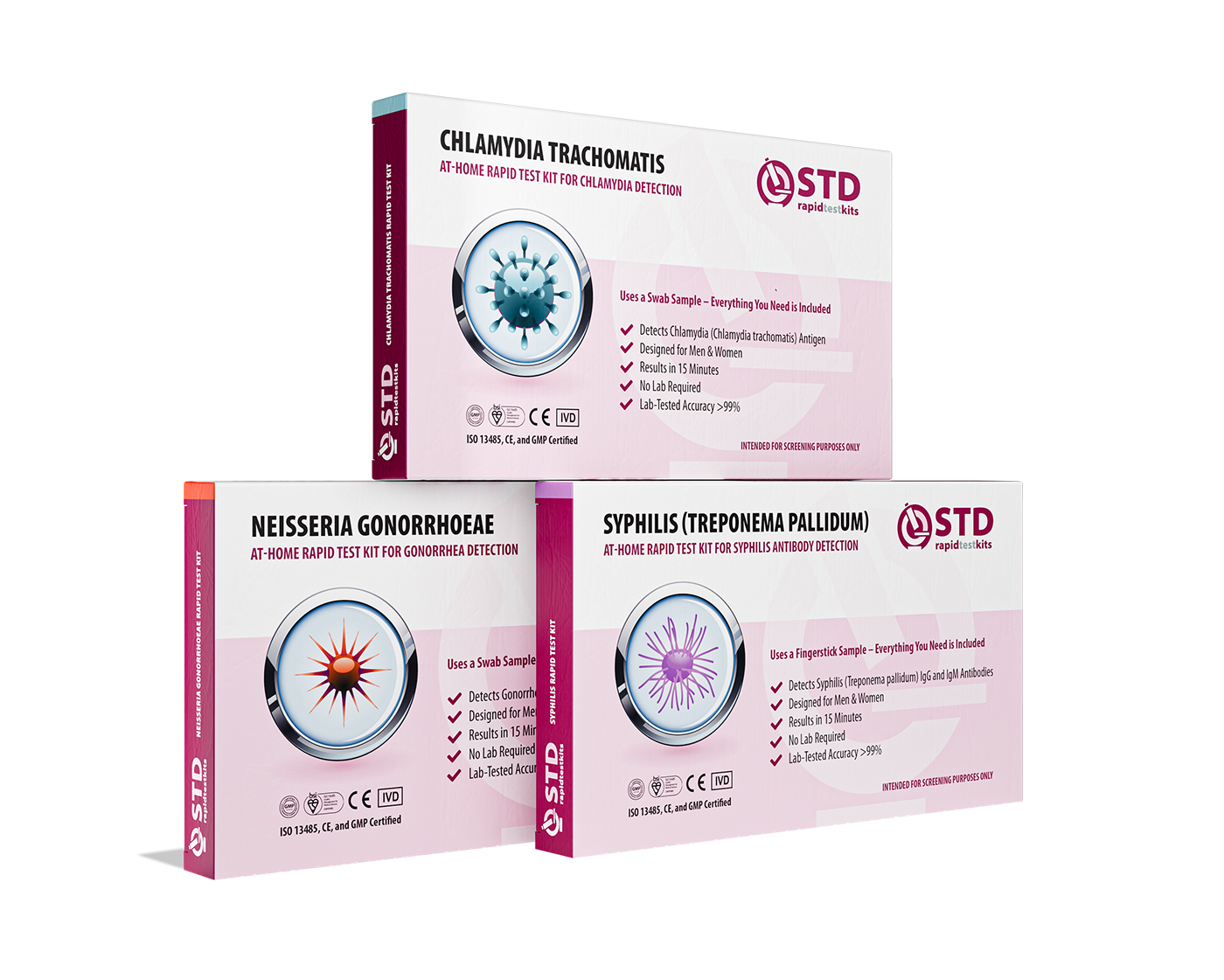
 For Men & Women
For Men & Women Results in Minutes
Results in Minutes No Lab Needed
No Lab Needed Private & Discreet
Private & DiscreetOrder Now $69.00 $147.00
For all 3 tests
Who Should Use an At-Home STD Test?
Short answer: anyone who has sex and wants clarity. But these kits are especially empowering for:
- People without regular access to healthcare or insurance
- Queer, trans, or nonbinary folks seeking nonjudgmental options
- Couples in open relationships or navigating new trust agreements
- Busy professionals who can’t afford hours at the clinic
- Survivors of sexual trauma who want to test in private
For people in medically underserved areas or facing stigma, STD Rapid Test Kits offer agency and autonomy. You get tested on your terms, with no shame, no invasive questions, and no one looking over your shoulder.
How to Avoid False Negatives and Inaccurate Results
Here’s the truth: even the best test kit can give you the wrong answer if it’s used too soon after exposure, or incorrectly. That’s where timing and technique matter.
Most STDs have an incubation period. If you test too early, before the infection is detectable, you could get a false negative. For example, HIV antibodies take 2 to 12 weeks to show up in your blood. Chlamydia and gonorrhea can take up to 7 days. The golden rule: wait 2 to 3 weeks after exposure unless symptoms appear earlier.
Also crucial? Following every step of the instructions. Wash hands. Don’t contaminate swabs. Seal the sample correctly. At-home testing puts the power in your hands, literally. That’s why precision counts.
What If You Test Positive?
First: don’t panic. A positive result doesn’t mean you’re dirty, doomed, or alone. It means you’re informed, and that’s powerful.
Most test kits will include next steps, including how to find treatment or book a telehealth consult. Chlamydia, gonorrhea, trichomoniasis, and syphilis are all treatable with antibiotics. HIV is manageable with medication. Hepatitis can be monitored and, in some cases, cured.
If your kit didn’t include follow-up care, contact a local sexual health clinic or primary care provider. You can also visit gettested.cdc.gov to find services by zip code. And yes, telling recent partners is the right thing to do. Most states have anonymous partner notification tools to help with that.

People are also reading: Why Black Queer Men Still Face the Highest HIV Rates, And What’s Really Behind It
Can At-Home Testing Replace the Clinic?
In many cases, yes. For screening and early detection, at-home STD tests are as effective as going to a clinic. They won’t replace treatment (you’ll still need a doctor for meds), but they’re a smart first step, especially for regular checkups or when you’re asymptomatic.
Where they fall short: STI testing that requires a physical exam (like genital warts or pelvic inflammation), full-panel bloodwork, or urgent care. But for most bacterial and viral infections, these kits are changing the game. And they’re especially powerful for those living in care deserts, LGBTQ+ folks avoiding hostile providers, or anyone craving privacy in a sex-negative world.
Want to see which kit is right for you? Explore STD Rapid Test Kits now and take your health into your own hands, literally.
Why People Still Doubt At-Home STD Testing
Despite clinical data backing their accuracy, many still don’t trust at-home STD kits. Why? Because sexual health has always been gatekept, by doctors, by shame, by outdated norms. People associate “real” healthcare with in-person visits, even when those visits are rushed, awkward, or judgmental.
We’ve been trained to believe you need a white coat and fluorescent lights to get answers. But science has moved on. And it’s time our assumptions did too.
Debunking the Myth: At-Home = Low Quality
Let’s kill a myth: that convenience means poor quality. The top test kits on the market use CLIA-certified labs, the same certification required for hospital diagnostic testing. Your urine or blood sample is analyzed by actual clinical technicians, not robots or interns.
And unlike rushed clinic visits, you’re the one taking your time. That means fewer collection errors and less embarrassment-driven avoidance.
Check Your STD Status in Minutes
Test at Home with Remedium10-in-1 STD Test Kit
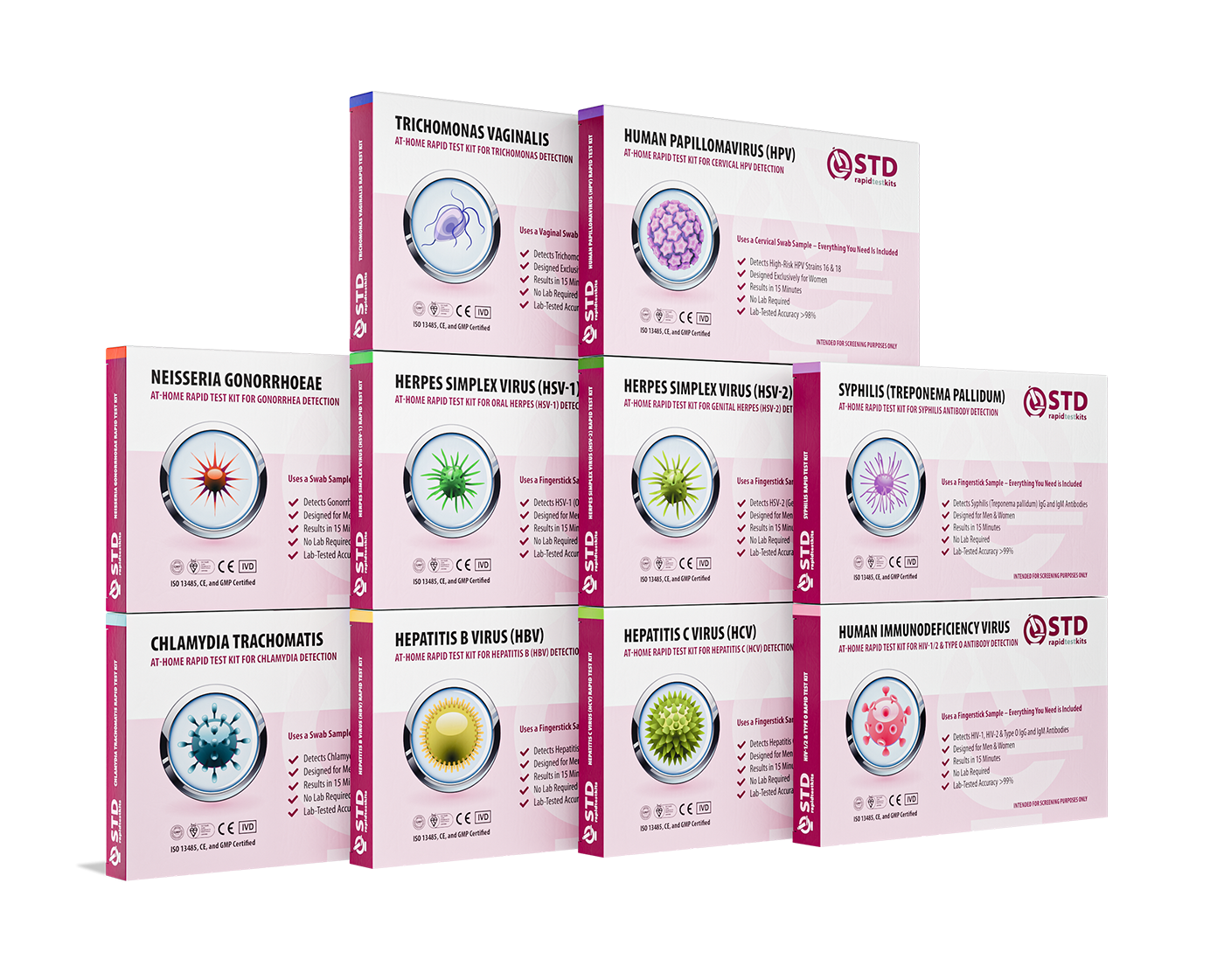
 For Women
For Women Results in Minutes
Results in Minutes No Lab Needed
No Lab Needed Private & Discreet
Private & DiscreetOrder Now $189.00 $490.00
For all 10 tests
Are They Affordable?
Most comprehensive STD panels range from $79 to $199 depending on what’s included. That might sound steep, but compare that to urgent care fees, specialist appointments, or untreated infection complications.
Some kits are FSA/HSA eligible. And many cost less than a dinner and drinks. The bigger question is: what’s your peace of mind worth?
Discreet Shipping Is a Game Changer
No logos, no embarrassing labels, no one peeking at the mailroom. At-home kits come in plain envelopes or unmarked boxes. Even your roommate won’t know what it is. This level of privacy makes it easier for people in shared homes, conservative families, or abusive relationships to prioritize their health safely.
How Often Should You Test?
Experts recommend testing at least once a year if you're sexually active, and every 3 to 6 months if you have multiple partners, are on PrEP, or are part of a vulnerable group. At-home kits remove all your excuses: no scheduling, no judgment, just action.
Think of it like brushing your teeth. It’s hygiene. Not shame.
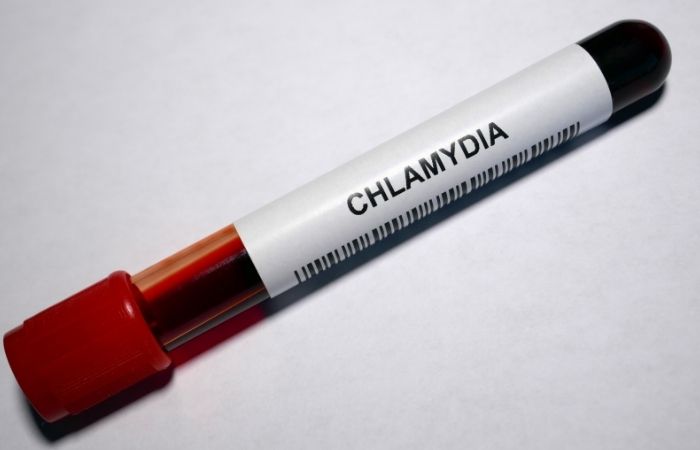
People are also reading: Private and Accurate: How At-Home Test Kits Are Changing Sexual Health
At-Home Testing and the LGBTQ+ Community
Queer and trans people are often denied respectful care, or misgendered, dismissed, or pathologized. At-home kits offer a way to screen without trauma. No side-eye. No uncomfortable waiting rooms. Just facts and autonomy.
This matters. Because trauma-informed care includes having the option to test privately.
Parents, Teens, and Testing at Home
While most kits are designed for adults, many teens (18+) use them for privacy, especially in unsupportive homes. Parents can also buy them for their teens as an educational tool. It’s a way to open the door to conversation, not hide it behind closed doors.
Sexual health starts with honesty and trust. These kits can build both.
Check Your STD Status in Minutes
Test at Home with Remedium7-in-1 STD Test Kit

 For Men & Women
For Men & Women Results in Minutes
Results in Minutes No Lab Needed
No Lab Needed Private & Discreet
Private & DiscreetOrder Now $129.00 $343.00
For all 7 tests
The Role of Testing in Ending STI Stigma
When testing becomes normal, STDs stop feeling like moral failures. They become what they are: infections. Treatable, manageable, human.
At-home testing is more than convenient, it’s a cultural shift. A way to make regular screening feel as normal as a flu shot or dental cleaning.
Who Should NOT Rely on At-Home Tests Alone?
If you’re experiencing painful symptoms like discharge, pelvic pain, ulcers, or sores, don’t wait for the mail. Seek in-person care. Some conditions (like HPV-related genital warts or PID) require physical exams and imaging.
At-home tests are powerful, but they’re a first step, not a replacement for care when you're in distress.
What to Look For When Buying a Kit
Look for kits that list:
- CLIA-certified labs
- FDA clearance or EUA if applicable
- Clear timelines for sample return and results
- Follow-up care or telehealth options
Don’t buy from third-party resellers. Use trusted sources like STD Rapid Test Kits to ensure your health stays protected and private.
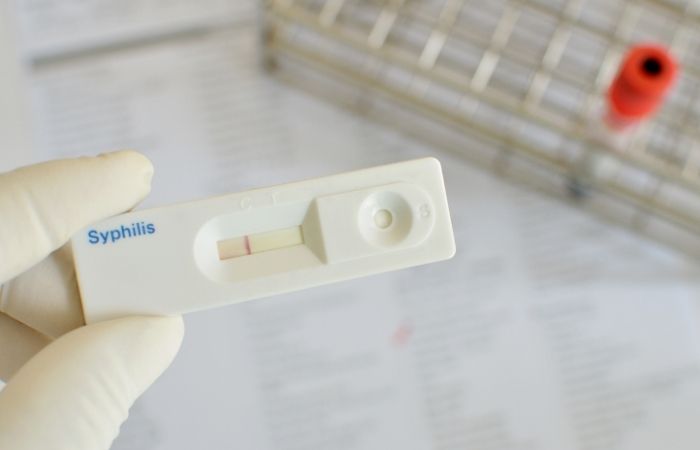
People are also reading: The Breakthrough HIV Injection You Need to Know About
FAQs
1. Are at-home STD test kits FDA-approved?
Some are FDA-cleared, particularly for HIV and multi-infection panels. Always check the product details and buy from a trusted provider like STD Rapid Test Kits.
2. How fast do at-home STD tests return results?
Most kits offer results within 2 to 5 business days after mailing your sample to the lab. Rapid HIV tests and some urine-based chlamydia tests may offer same-day or next-day results.
3. Can I get a false negative from an at-home test?
Yes, especially if you test too early. Each STD has a window period. Testing too soon after exposure may miss early infection. Follow timing guidelines for best accuracy.
4. Do these tests check for everything?
No. Most home kits test for the most common infections (chlamydia, gonorrhea, HIV, syphilis, trich). Herpes and HPV require more complex diagnostics. Always read what’s included.
5. What happens if I test positive?
Many kits include follow-up support via telehealth or prescriptions. If not, use local health clinics or your primary provider for confirmatory testing and treatment.
6. Are my test results private?
Yes. Your data is protected under HIPAA if handled by a licensed lab. Results are typically delivered through a secure online portal.
7. Do I need to stop medications before testing?
If you're on antibiotics, wait at least a week after your last dose to test. Medications can mask infections and skew results.
8. Can I use these tests if I’m on PrEP?
Yes, and you should test regularly. Most PrEP users benefit from quarterly STD screening, and home kits make that easier.
9. Are these tests safe for pregnant people?
Yes, many are. In fact, early detection of infections like syphilis and HIV is crucial during pregnancy. Always confirm with your provider or the test manufacturer.
10. Where can I buy a reliable kit?
Start with vetted, lab-backed kits like those from STD Rapid Test Kits. They’re discreet, accurate, and affordable.
Forget Waiting Rooms
Forget awkward conversations. At-home STD test kits offer 92–99% accuracy, total privacy, and results you can trust. Whether you’re screening between partners, checking a symptom, or just reclaiming your health, these tests make it easy, fast, and stigma-free.
You don’t need permission to know your status. And you don’t need shame to protect your future. You need good information, the right tools, and a system that puts your body back in your hands.
Explore STD Rapid Test Kits now and take control, because your sexual health deserves nothing less.
Sources
3. NIH – Accuracy of Self-Collected STD Tests










